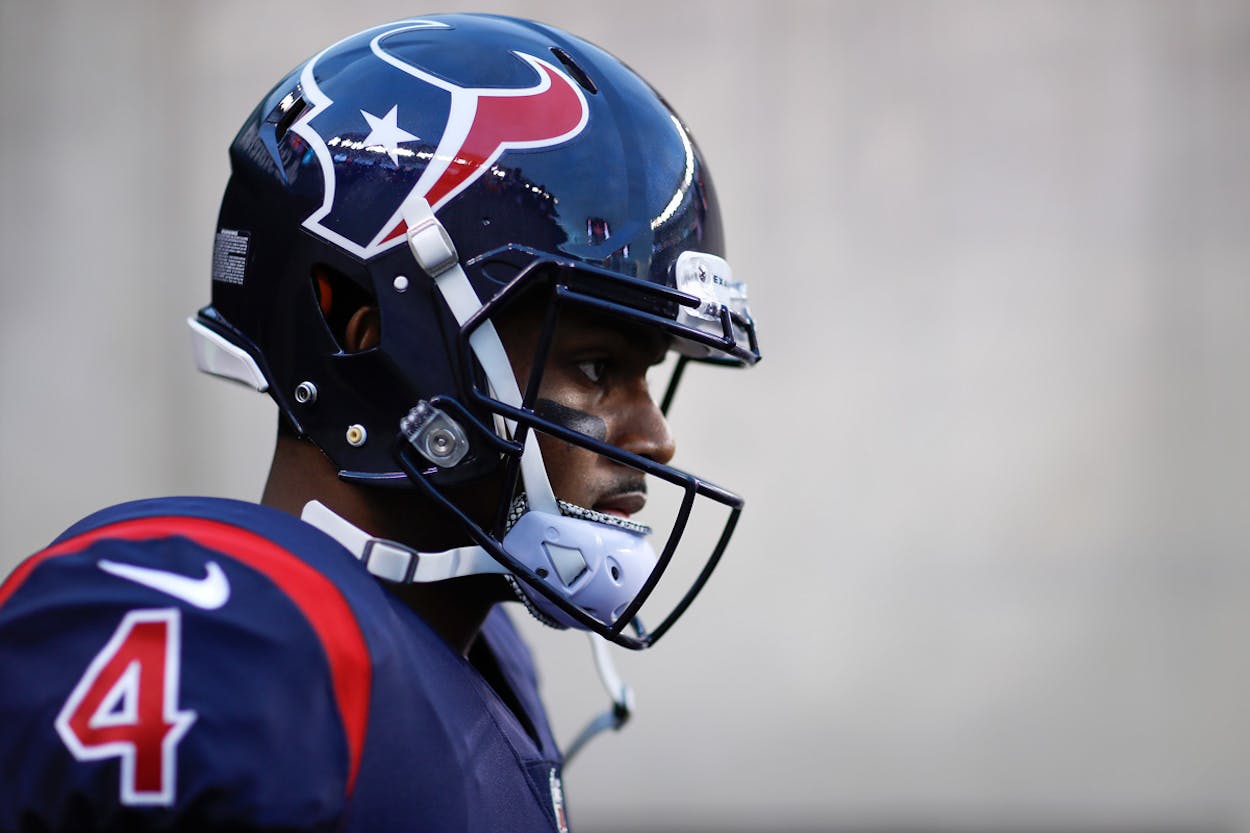There was already a lot to like about Deshaun Watson. He offered hope to a Houston Texans team that hasn’t had a legitimate starting quarterback since Matt Schaub was benched in 2013. He took over the job in Houston thirty minutes into the season, and everything since then has been impressive. He won his first start on the road against Cincinnati and managed to put the team over the top with a long touchdown run. Then, on Sunday, he put on an incredible performance that nearly saw him outplay the defending Super Bowl champions in New England. Weep for the final score (36–33, after Tom Brady once more pulled off last-second magic) if you must, but the future of the Texans is bright, and the name in lights is Deshaun Watson.
But, as it turns out, there’s actually more to like about the team’s rookie quarterback. That became clear after the team revealed that Watson—who, as a rookie with a base annual salary of $465,000 before agents, lawyers, managers, and taxes take their cut, isn’t yet sitting on a pro athlete’s fat bank account—donated his first game check ($27,353) to three women who work in the cafeteria at NRG Stadium whose homes were affected by Hurricane Harvey.
It’s a uniquely kind gesture from Watson. His teammate J.J. Watt raised a staggering amount of money for the city’s relief fund, demonstrating the power that an athlete with an outsized platform can do to help people in times of need. Watson’s act is a different kind of generosity: he’s personally changing specific lives at a time when those lives need changing. And that’s something that Watson understands from firsthand experience.
When Watson was merely the star quarterback for an unexpectedly potent Clemson team in college, he was an active participant as a volunteer with Habitat for Humanity. He didn’t pick the organization out of a hat—rather, he understood the organization’s impact because, when he was eleven years old, his mother applied for and received housing through it. The gift, which came days before Thanksgiving in 2006, was presented to the family by someone whom the young Watson admired: Atlanta Falcons running back Warrick Dunn, whose own charitable impulses are similarly well documented.
In a 2015 profile, ESPN wrote about the impact that the gift from Dunn had on his family. Watson, at that point, wasn’t just a volunteer with Habitat, he was also a spokesman for the organization, explaining to potential donors and applicants alike the life-changing power of giving people a safe, comfortable place to live.
“We were in government housing,” Watson tells the crowd. “[Mom] figured, ‘What could be worse?'”
Watson talks about the old neighborhood, where he played pickup football games with gang members and drug dealers. He talks about the new house at the top of a hill with a wide front yard in a well-appointed suburban neighborhood. He talks about hope, because that’s what he found in his new home.
That’s a lesson that Watson never forgot, and though it’s not surprising to see him put his money where his mouth is—now that he finally has the money to do so—it is another reminder that Houston got something pretty special with the number twelve overall draft pick back in May.








